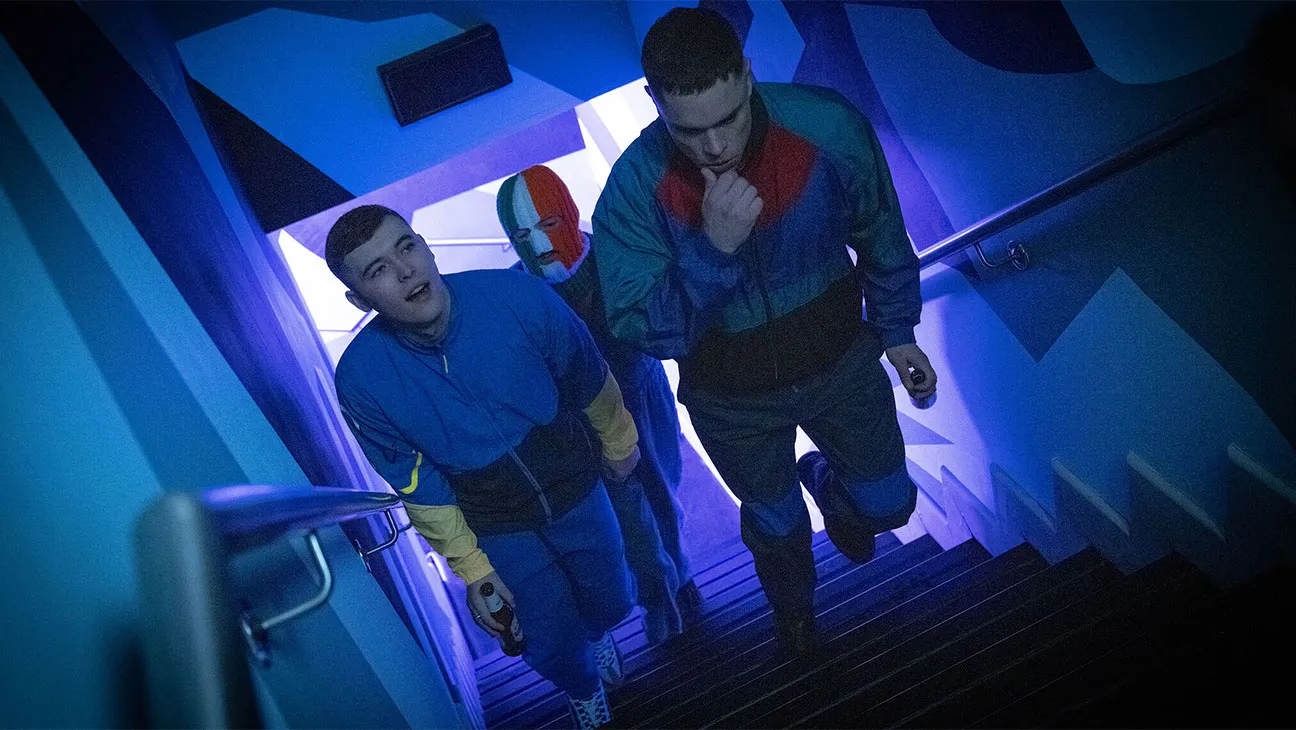Review: "Kneecap"
- Jennifer Green

- Sep 2, 2024
- 3 min read
Updated: Nov 21, 2024
It’s rare that a film can be edgy and entertaining, and at the same time educational. Ireland’s early submission to the International Oscar race, Kneecap is an in-your-face romp packed with sex, drugs and Irish hip hop, starring the real-life members of the band at its heart. It might be a tough sell to aging Academy voters, but it’s a raucously fun ride, and one with a serious message about preservation of the Irish language and the impact years of fighting has had on the Irish people.
As young boys, Naoise Ó Cairealláin and Liam Óg Ó Hannaidh are taught the Irish language by Naoise’s militant nationalist father Arlo (Michael Fassbender). Fast forward, and the boys are now hard-partying twentysomethings in constant trouble, and Arlo has become a legend – a political martyr who is either dead or on the run. One night after Liam is arrested and refuses to admit he speaks English, local Irish language schoolteacher JJ Ó Dochartaigh is called in to translate. He’s given a notebook containing Liam’s writings and is later inspired to put his words to music.
When Liam is released, JJ convinces him and Naoise to start a band, and JJ joins as manager, mixer and eventual third performer, DJ Próvaí. Under the constant watch of the authorities, especially stern Detective Ellis (Josie Walker), the band begins gaining in notoriety – as much for their rebellious music as for their “anti-social” antics, anarchic concerts and defiantly superfluous drug consumption.
The script gives all three characters their own storylines – JJ’s home life and career, Liam’s relationship with a local Protestant girl and Naoise’s emotionally absent parents. Liam’s first-person narration is used sparingly and wittily. He and Naoise explain to the camera in a documentary-style split-screen that they’re part of the “ceasefire generation.” In their typical flippant style, one spits, “The Troubles? I’ve got fucking troubles!” The political is painfully personal for these kids.
Director Rich Peppiatt, who wrote the script with band members Móglaí Bap and Mo Chara (Naoise and Liam’s stage names), throws all kinds of fancy camerawork and framing at viewers, set to the band’s own pumping rap. Somehow it works perfectly with the material. Cinematographer Ryan Kernaghan makes it seem like the camera is inside a character’s nose as it sniffs white powder, in his eyes during a hangover, or even inside a slot machine looking out at three perfectly framed band members.
One highlight is a cheeky foot-chase scene through the streets of Belfast, with the diagonal white lines on Liam’s green tracksuit conspicuously matching railings and wall paintings and tilted camera angles. Another highlight is one of many drug trip sequences – in this one, the characters turn into Claymation figures in their delirium.
It’s hilarious, even though deep down you know there’s really nothing funny about the stars’ compulsive drug consumption. The band is all they’ve got in a gloomy town of stifling police oppression and few opportunities. In this, the film has shades of Trainspotting. Mix in a bit of The Commitments – or, in the case of the uninspired schoolteacher who rediscovers his joy for life, maybe Another Round.
The difference is that this one also has a message about the fight to sustain indigenous languages (and, by extension, cultures). End credits close with facts about the passage of the Irish Language Law in 2022 and the fast disappearance of indigenous languages worldwide. It’s a message that never gets lost amid the high jinks of the band members, although the filmmakers have smartly kept the didacticism fully encased in an entertaining package.
This review originally ran on AWFJ.com
Images courtesy of Sony Pictures Classics





Comments